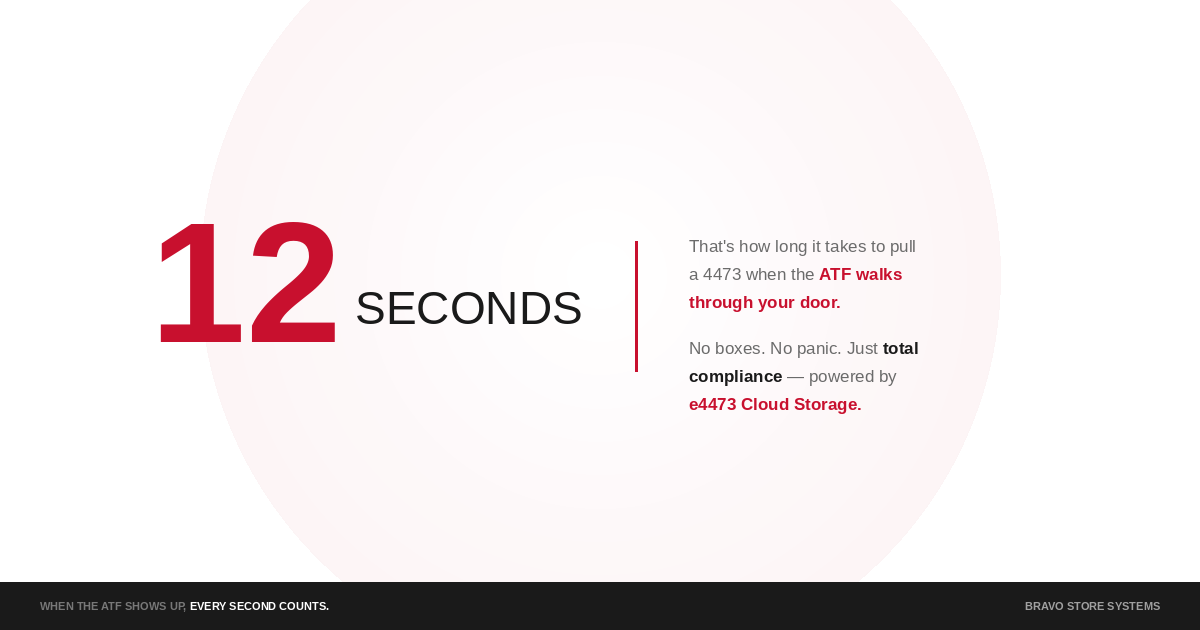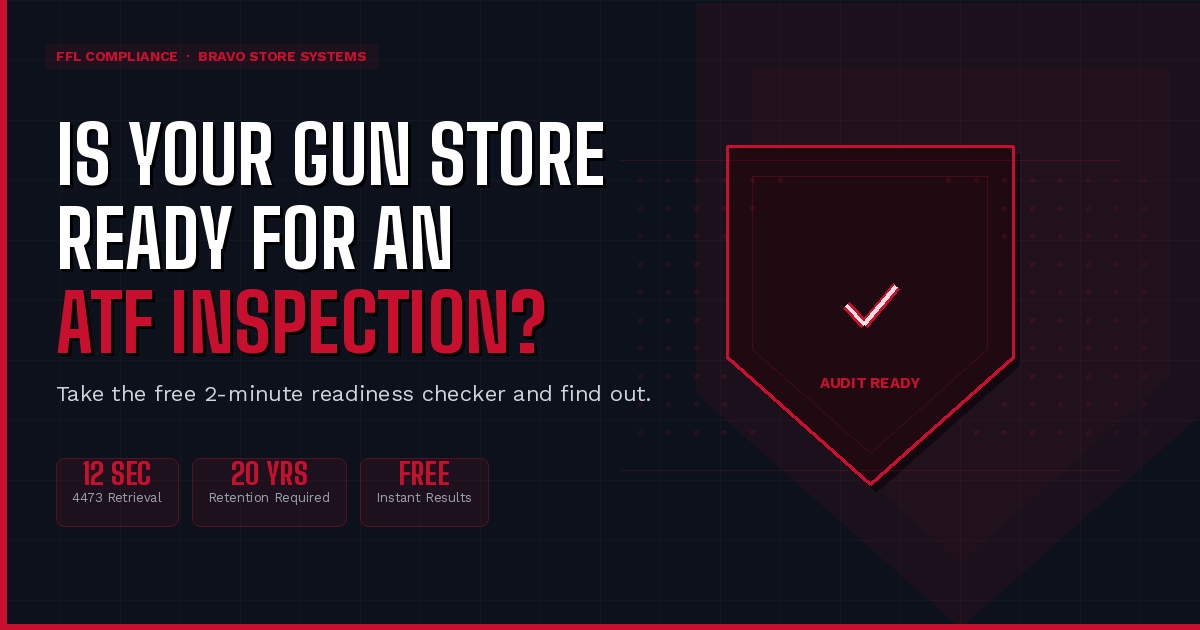The 13 Dos and Don’ts of Evaluating FFL Software Providers
By Tally Mack
Choosing a software provider to help run your business is a critical decision. Software providers and their products directly impact your ability to grow and scale operations, maximize productivity and operate more profitably. The software you use also affects your ability to deliver great experiences for both your employees and your customers.
Your software is a key financial investment that should produce impactful and measurable returns.
There’s a lot to consider when you’re evaluating software providers, and multiple factors contribute to the decision-making process while you narrow down which software provider will be the best fit for your business. Too often decision makers fall into the trap of making a purchase decision with limited information or without thorough evaluation of all choices.
At Bravo we encourage decision makers to ask a lot of questions while they’re evaluating our software. And as a user of several software products ourselves for our own internal operations, we’re experts in the area of evaluating software providers and products.
Keep reading to learn more about the dos and don’ts of software evaluation so you can feel confident in your choice of software partner.
THE DON’TS
These are the most common pitfalls that decision makers fall into when evaluating software. Avoid these common mistakes and you’ll avoid making a choice that could cost you a lot of time and money in the long run.
DON’T make your decision on price alone
You want to assess value and determine if the cost of the product is justified by all the benefits you’ll receive from the partnership with a particular software provider.
DON’T limit your evaluation/questions to product-related information only
You’re not just buying a product. You’re entering a partnership with a company. Look at the relationship holistically - are these people you can trust?
DON’T expect to get everything you want
Software providers can’t meet every single need or provide every desired feature for all unique customers. You want to prioritize what’s most important to your business, what are your deal breakers and what are your “nice to haves.”
DON’T rely on words alone – ask for proof
This doesn’t just apply for seeing the software in action. Ask for documentation about things like Customer Satisfaction scores and onboarding processes. Companies that don’t document these “softer” processes and metrics tend to over promise and under deliver.
DON’T withhold information from the salesperson you’re working with
Be upfront about what your challenges are, how you want things to change if you change providers, what your budget and timing are, what you like/dislike about your current software provider. This helps a (good) salesperson determine if the software they’re providing is a good fit.
DON’T base your decision solely on short-term needs
Businesses need to consider short-term gains, but when it comes to making such a significant choice, you must think about the long-term needs/goals and direction of your company. This is how you know if you can grow and change with your software provider.
DON’T wait until final stages to include all stakeholders/decision makers
Let stakeholders in your company know that you are evaluating new software, ask them what questions they need answered during evaluation so that you get buy in throughout the process.
THE DO’S
DO research the company
When you purchase software, you’re not only buying products and services--you’re also entering a partnership with a company. You will be dependent on this organization to provide vital business services. Your software partner should be comprised of people you can trust to advocate for you, do right by you and act with integrity.
Understanding the people and values behind the software products and services is a critical component to making an informed decision about who you should sign a contract with.
DO deep dive into the product
This seems obvious... of course you need to learn about the product when you’re considering a new platform. But learning about the product goes beyond participating in a demo once or twice.
It’s critical you take the time to go beyond just seeing what a sales representative chooses to show you during a product demo. Especially in the FFL space, compliance is KEY. Does the software provider have a focus on compliance and are they making firearm transactions easier AND safer? Asking tough questions during the evaluation process can make ATF audits easier, save you from license revocation, or even business closure in the future.
DO assess customer satisfaction
You read reviews for restaurants you’re interested in or your latest Amazon purchase – software should be no different. After all, if current or past customers haven’t had great experiences, it’s safe to assume you won’t either.
Much of what you’re doing during the consideration stage is performing your own research or speaking with representatives of a company. Reading actual customer stories and, in some cases, speaking directly with real customers is a way of gathering unbiased information and perspectives.
DO research & consider employee satisfaction of the software provider
Happy employees = happy customers. In fact, software providers that excel at providing great customer experience, have 1.5 times more engaged employees than companies with poor customer experience.
Check out employee reviews on sites like Glassdoor to see what employees think and feel about the company you’re considering working with. If employee ratings are low and comments are disparaging, it is a strong possibility company leadership is lacking, values are not being lived by, and customer experience is poor.
DO discuss onboarding, training & conversions
Implementation includes everything from converting data to onboarding and training to your actual go-live date when you start to use the new software.
Ask specific questions about the steps involved during implementation. A mature company with a solid infrastructure will be able to walk you through each step of the implementation process, including who will be involved, the time commitment, and what they need from you during each stage.
DO ask about post-sale support
Learning what happens after you sign on the dotted line is as important as anything else you cover in your consideration process.
Too often, tech vendors sell a company a product and then provide little or no support to help a new customer go live. Be sure to consider what the onboarding and training processes look like, as well as what ongoing support will entail.
Choosing the right software to help run your business is a major decision. Especially in the FFL space, a focus compliance and experience with firearms sales is crucial. Are you asking the right questions?
About the Author:

Tally Mack is a fifth-generation pawnbroker and eCommerce enthusiast. She loves traveling, being outside, and working out.
Before taking the reins as CEO, Tally served as Bravo's Vice President of Business Development, leading the company's sales and marketing organization. She's been instrumental in leading and executing many of the company's strategic shifts, including the acquisition of CompuPawn and the recent launch of UsedGuns.com.
Tally earned her Doctorate of Law (J.D.) from DePaul University College of Law in 2013 after attending the University of Colorado at Boulder, where she earned her B.A. in Communication Studies. She also completed the Key Executives Program from Harvard Business School in 2013.
Tally is a pawnshop lover and eCommerce enthusiast—dedicated to the success of both her employees and customers!



















